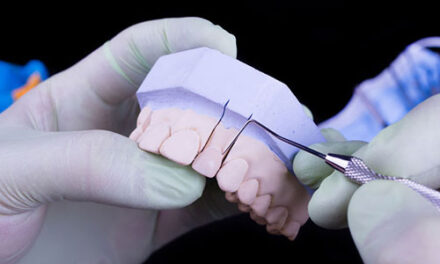Dental health is something that is often neglected in favor of more pressing health concerns like weight loss and fat loss. Dental health, however, is just as important as overall physical health. Believe it or not, poor dental health has just as much effect on a person as their overall physical health.
Importance of diet in dental health
Diet plays a very important role in dental health. A healthy, balanced diet should contain the essential vitamins and minerals that keep the teeth and gums in optimum condition for a long time.
A diet rich in vegetables, lean protein, healthy fats, and low glycemic carbohydrates (e.g., fibrous vegetables and fruit) and low in simple sugars (e.g., bread, cakes and candies) go a long way in preventing tooth decay.
Link between dental health and disease
Researchers have discovered a correlation between gum (periodontal) disease and cardiovascular disease. While a concrete scientific relationship has yet to be established, the researchers reported two interesting findings.
First, the type of bacteria present in gum disease is also present in the blood vessels undergoing atherosclerosis (the prelude to heart disease). Second, inflammation of the gums increases the levels of a body protein called CRP (C-reactive protein). CRP is also one of the indicators used by doctors to evaluate a person’s risk of having heart disease, and interestingly enough, CRP levels are also higher in those suffering from obesity (another well-known risk factor for heart disease).
Cancer is another health condition that has correlation with oral health. A study by Harvard researchers showed a link between periodontal disease and pancreatic cancer. While the study has not yet been verified by laboratory experiments, it is the initial speculation of the researchers that gum inflammation is a significant factor, as it also causes inflammation in other parts of the body.
Nutrients for optimum tooth and gum health
Just like the rest of the body, the gums and the teeth also require specific nutrients to keep them in optimum shape and prevent infection, inflammation, and damage. The following nutrients are essential for dental health:
1. Calcium
Calcium is a trace element that is the main component of the physical structure of teeth and bones. Normal calcium levels help keep the tooth enamel healthy and resistant to erosion caused by bacteria. Calcium deficiency leads to tooth decay brought about by the weakening of tooth enamel.
The US National Institutes of Health recommends the following daily intake for calcium: 1200 milligrams for men and women over the age of seventy, 1000 milligrams for men and women aged nineteen to seventy, 1300 milligrams for children who are between the ages of nine and eighteen, 1000 milligrams for children between four and eight years old, and 700 milligrams for children between one and three years old.
Calcium is readily available in dairy products (e.g., milk and yogurt), turnip and collard greens, and kale. It can also be found in its most bioavailable form within humic acid (i.e. Leaf- Source).
2. Zinc
Zinc is another important trace element that is also involved in many body processes. While not as abundant as calcium, it plays an important role in maintaining dental health by preventing gum infection and plaque build-up. Deficiency in zinc can lead to mouth sores and gingivitis.
Aside from preventing infections, zinc has also been proven to significantly reduce bad breath. Researchers have conducted studies on the effect of zinc-fortified mouthwashes and chewing gum on bad breath. They discovered that the zinc in the oral products reduced the real cause of bad breath—sulphur-containing compounds.
The recommended daily intake for zinc is eight milligrams for adult females and eleven milligrams for adult males. Zinc can be easily incorporated into one’s diet, as its sources are readily available to everyone. Oysters are said to contain the highest amount of readily available zinc, followed by liver and beef. Other sources include wild rice, cheese, and humic acid (i.e. LeafSource).
3. Iron
This trace mineral functions mainly as a carrier of oxygen throughout the body via the bloodstream. Lack of iron in the diet causes anemia, which in turn reduces oxygen flow in the various body cells and tissues. Lack of oxygen flow has been linked to infections and sores. In the mouth, this is manifested by bleeding gums and painful canker sores that often take a long time to heal.
Just like zinc, dietary sources of iron are plentiful and inexpensive. Good sources are liver and other meat products. Iron-fortified foods like breakfast cereals can also help a person meet the recommended daily iron intake of eight milligrams (for adult males) and 18 milligrams (for adult females), however in my opinion, most are way too high in sugar, which negates any of their fortification.
4. Magnesium
Together with calcium, magnesium helps strengthen the tooth enamel and prevents the formation of cavities and the onset of tooth decay. The recommended daily requirement for magnesium is 400 milligrams.
One of the best supplemental sources of magnesium is magnesium bisglycinate (magnesium bound to the amino acid glycine). The bisglycinate form is believed to be many times more absorbable than the citrate form. Dietary magnesium can be found in a wide variety of sources—fish, dark green leafy vegetables, dark chocolate, and bananas.
References:
- Slade GD, et al. Relationship between periodontal disease and C-reactive protein among adults in the Atherosclerosis Risk in Communities study. Arch Intern Med. 2003 May 26;163(10):1172–9.
- Michaud DS, et al. A prospective study of periodontal disease and pancreatic cancer in US male health professionals. J Natl Cancer Inst. 2007 Jan 17;99(2):171–5.
- Periodontal Disease and Systemic Health. American Academy of Periodontology. (Accessed May 21, 2015).
- NIH Medline Plus. http://www.nlm.nih.gov/medlineplus/magazine/issues/winter11/articles/winter11pg12.html.
- Fedorowicz Z, et al. “Mouthrinses for the treatment of halitosis.” Cochrane database of systematic reviews (Online) (4): CD006701. Oct 8, 2008.
- Iron: Fact Sheet for Health Professionals. NIH Office of Dietary Supplements











